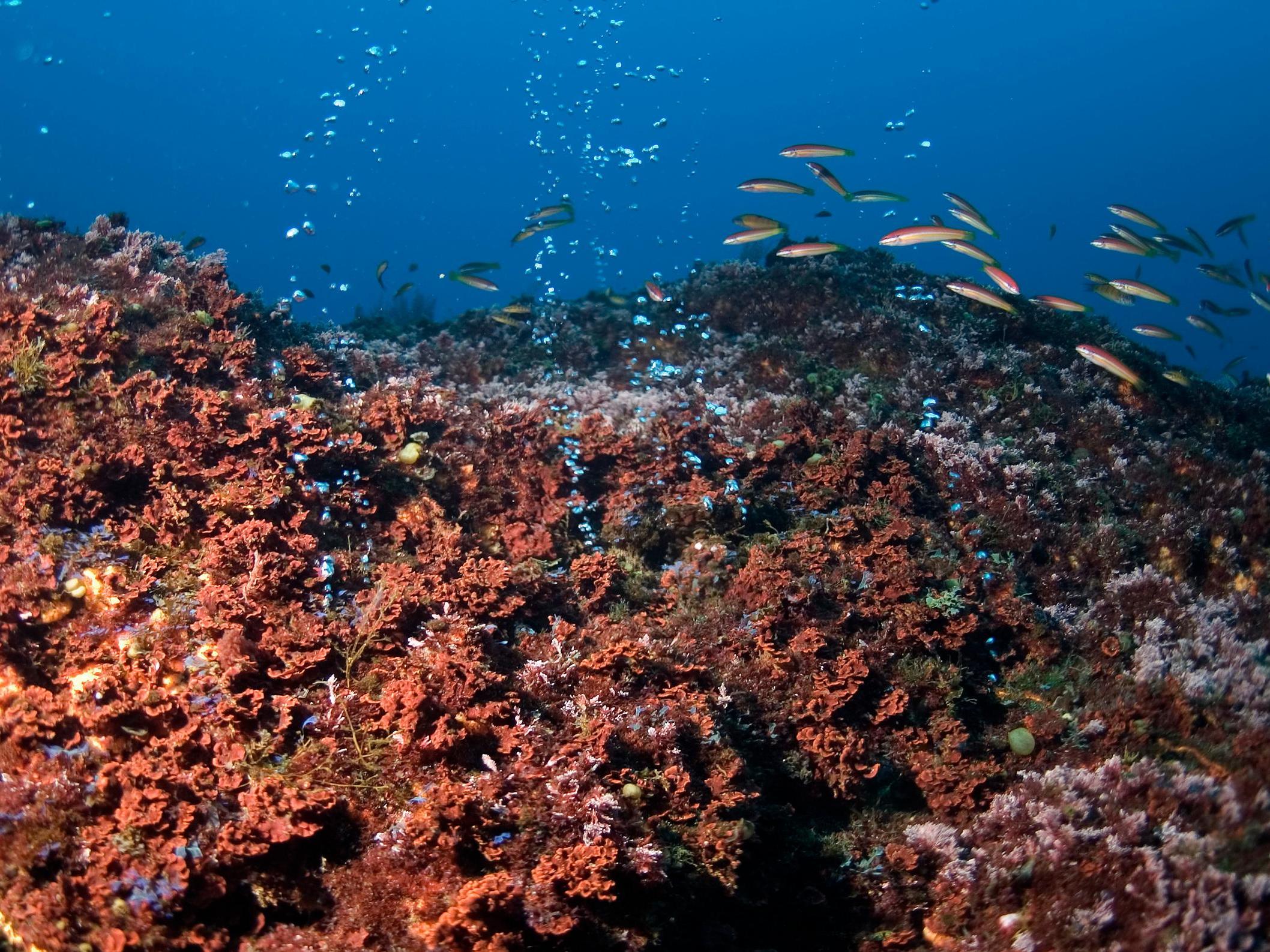Ocean floor area five times bigger than UK set to be industrially mined
‘Greedy industry could destroy wonders of the deep ocean before we even have a chance to study them,’ Greenpeace says

Your support helps us to tell the story
From reproductive rights to climate change to Big Tech, The Independent is on the ground when the story is developing. Whether it's investigating the financials of Elon Musk's pro-Trump PAC or producing our latest documentary, 'The A Word', which shines a light on the American women fighting for reproductive rights, we know how important it is to parse out the facts from the messaging.
At such a critical moment in US history, we need reporters on the ground. Your donation allows us to keep sending journalists to speak to both sides of the story.
The Independent is trusted by Americans across the entire political spectrum. And unlike many other quality news outlets, we choose not to lock Americans out of our reporting and analysis with paywalls. We believe quality journalism should be available to everyone, paid for by those who can afford it.
Your support makes all the difference.Irreversible harm to some of the planet’s most crucial ecosystems could be caused if an area of the ocean floor five times the size of the UK is mined, according to a new Greenpeace report.
The United Nations (UN) has issued 29 exploration licences for companies to deep-sea mine rare metals such as cobalt that will be used in batteries as the “green economy” grows.
Without proper governance, mining could remove entire habitats and species and release toxins in areas that have been undisturbed for millennia, the report found.
This “new industrial frontier” could also result in vast amounts of carbon stored in the ocean floor being released, which could jeopardise attempts to reduce emissions, it stated.
Although commercial deep sea mining has not yet begun, exploration licences have been granted to countries including the UK, France, Germany, China, Korea and Russia.
These permits give companies the right to dig up 1.3 million sq km (500,000 sq miles) of the Pacific, Atlantic and Indian oceans in total.
The UK has awarded licences to a subsidiary of Lockheed Martin called Seabed Resources which has permission to explore 133,000 sq km of sea floor.
Currently, only 0.0001 per cent of the ocean floor has been explored by scientists.
“The health of our oceans is closely linked to our own survival,” said Louisa Casson from Greenpeace’s Protect the Oceans campaign. “Unless we act now to protect them, deep sea mining could have devastating consequences for marine life and humankind.
“The deep sea is the largest ecosystem on the planet and home to unique creatures that we barely understand. This greedy industry could destroy wonders of the deep ocean before we even have a chance to study them.”
A growing number of countries are eyeing the ocean floor as a source of wealth, believing it is scattered with vast beds of minerals which are key to making modern gadgets, from smartphones to solar panels.
The licences have been granted by the International Seabed Authority (ISA), the UN body responsible for regulating the deep sea mining industry. Environmentalists have criticised the body for prioritising corporate interests above robust marine protection.
Deep sea sediments are an important long-term store of “blue carbon” which is naturally absorbed by marine life and carried down to the sea floor when marine creatures die.
“Opening up a new industrial frontier in the largest ecosystem on Earth and undermining an important carbon sink carries significant environmental risks,” the report states, adding: “Deep sea mining could even make climate change worse.”
Ms Casson described the ISA as “not fit for purpose to protect our oceans”.
She said: “It is more concerned with promoting the interests of the deep sea mining industry and lobbying against a strong global ocean treaty.”
A government spokesperson said: “The UK continues to press for the highest international environmental standards, including on deep sea mineral extraction. We have sponsored two exploration licences, which allows scientific marine research to fully understand the effects of deep sea mining and we will not issue a single exploitation licence without a full assessment of the environmental impact.”
NH Khadge, a scientist at India’s National Institute of Oceanography (NIO) which carries out sea floor surveys and tests environmental impacts of India’s deep ocean exploration programme, said Greenpeace’s report was “exaggerated”.
He said seabed operations would be significantly less harmful than mining on land, and that environmentally friendly technologies were being developed in line with ISA guidelines.
“It is not exploitation, it is friendly collection of the commercial deposits,” he told the Thomson Reuters Foundation.
Mining cannot start until regulations can be agreed. This is expected to happen by July next year.
Greenpeace called on the UN to secure a strong global ocean treaty, prioritising conservation, at talks in New York next month about oceans beyond national boundaries – an area of global governance that experts say has been neglected.
Ms Casson said: “It is critical that governments agree on a UN treaty strong enough to pave the way for the creation of a network of ocean sanctuaries that will be off-limits to all forms of industrial exploitation, including deep sea mining. It also needs to enforce much higher environmental standards for any such activity outside of these sanctuaries.”
Join our commenting forum
Join thought-provoking conversations, follow other Independent readers and see their replies
Comments